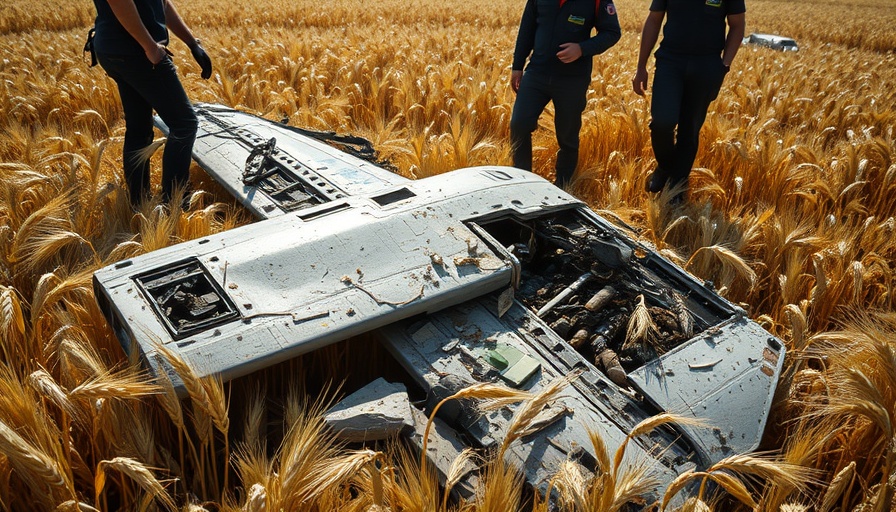
Europe Takes a Stand: The MH17 Ruling and Its Implications
On July 9, 2025, the European Court of Human Rights (ECHR) delivered a landmark ruling, implicating Russia in the downing of Malaysia Airlines Flight MH17 in 2014. This decision marks a significant moment not only for the families of the victims—who has spent over a decade pursuing justice—but also for international human rights law, as it holds a major power accountable for its actions in conflict.
Understanding the Context of the MH17 Disaster
Malaysia Airlines Flight 17 was on its way from Amsterdam to Kuala Lumpur when it was shot down over eastern Ukraine, resulting in the tragic loss of 298 lives. The flight was targeted amid the ongoing conflict between Ukrainian forces and Russian-backed separatists, which has drawn international attention and concern. This incident highlighted the turbulence in the region and the impact of geopolitical strife on innocent civilians.
The Symbolism of Accountability in International Law
The court’s ruling is not merely a formal declaration; it's a symbolic act of accountability in a world where powerful nations often evade consequences for their actions. The judges held that Russia violated international law during its intervention in Ukraine, reinforcing the idea that sovereignty and the rights of individuals must be protected—even in times of conflict. As noted by victims’ advocacy groups, holding a state accountable signifies a step toward justice not only for those affected by the MH17 tragedy but also for future victims of unlawful aggression.
The Emotional Toll: Families Reflect on the Ruling
For the families of victims, the court's findings serve as a reaffirmation of their loss and a source of hope. Thomas Schansman, who lost his son in the disaster, expressed that this decision aids in understanding the deeper truths surrounding the tragedy. “It’s a real step in understanding who was really responsible,” he stated, emphasizing the importance of this ruling in their collective journey toward closure.
Broader Implications: Human Rights Abuses in Ukraine
Alongside the MH17 ruling, the ECHR's decision encompassed various human rights violations resulting from Russia’s military actions in Ukraine. This includes accusations of kidnappings and human rights abuses against civilians, illustrating the extensive impact of the conflict. The findings from this court serve as an integral part of the ongoing narrative surrounding the war, as international scrutiny increases regarding the humanitarian implications of military engagements.
Responses from the International Community
Reactions to the court’s decision have echoed across various global platforms, stressing the necessity of maintaining a robust human rights framework. Analysts suggest that this ruling could set a precedent for future cases involving state accountability in military conflicts, emphasizing the potential for international courts to hold states responsible for violations. As countries and advocacy groups continue to engage on human rights issues, the significance of the ECHR's ruling becomes even more poignant.
Your Role in Supporting Justice
The revelations from the ECHR ruling serve as a reminder of our responsibility to advocate for justice in the face of adversity. Whether through raising awareness on social media, supporting victims’ families, or engaging in discourse about international law, each of us can contribute to a world that prioritizes accountability and human rights. Stay informed about these critical issues and engage with discussions to bolster a culture of justice.
 Add Row
Add Row  Add
Add 




 Add Row
Add Row  Add
Add 

Write A Comment